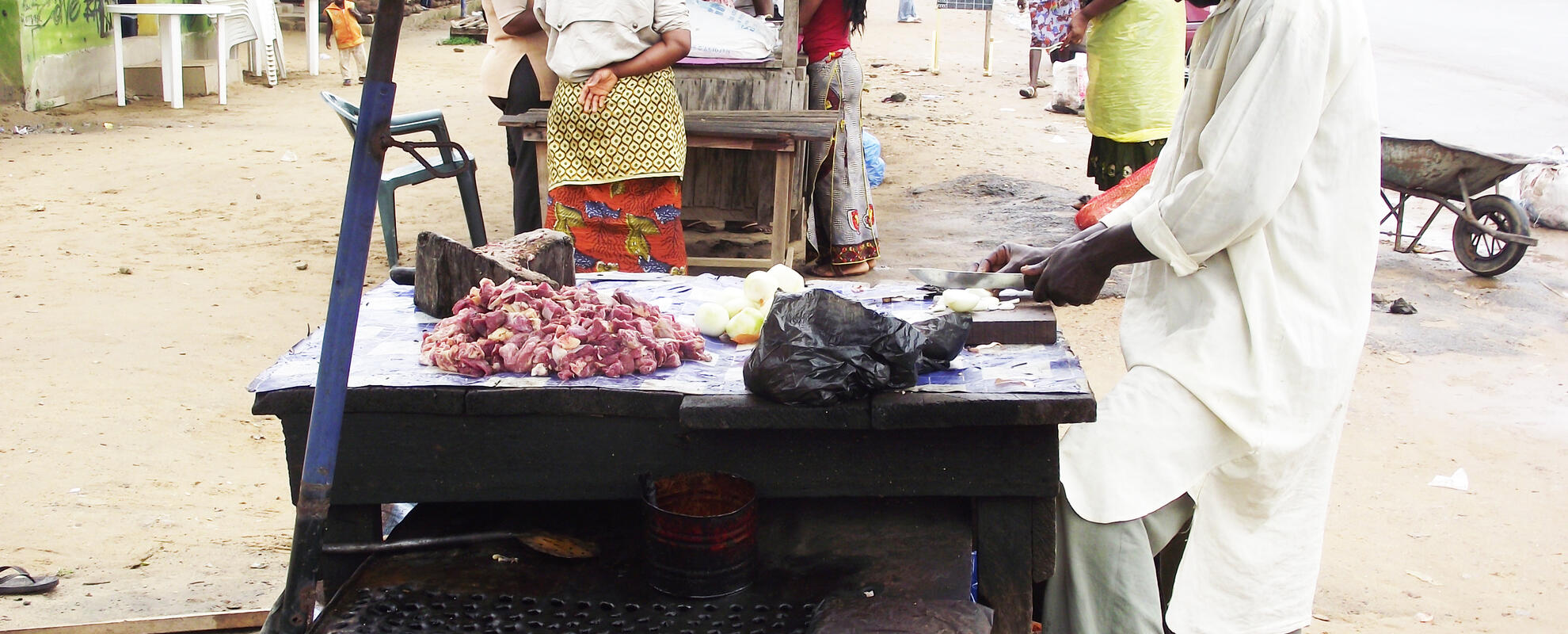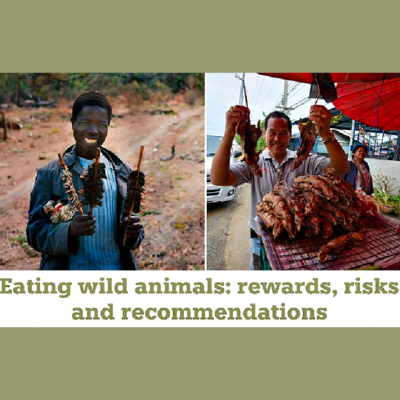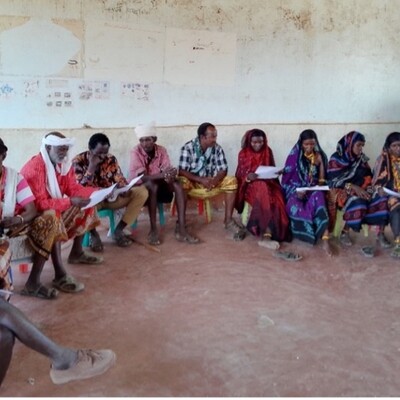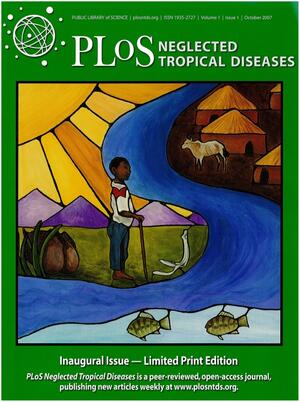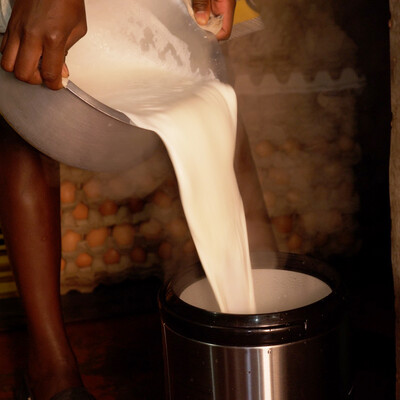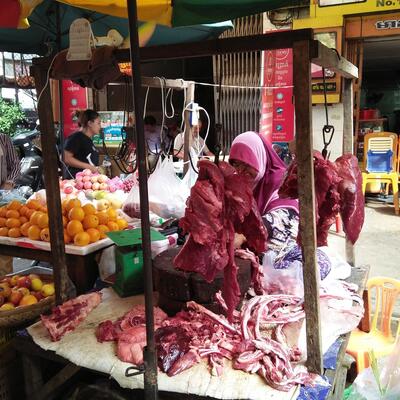
New report says investments in food safety in sub-Saharan Africa should prioritize the needs of local consumers
 Locally made beef stew sold in Bagnon market at Yopougon, Abidjan, Côte d’Ivoire (photo credit: ILRI/Valentin Bognan Koné).
Locally made beef stew sold in Bagnon market at Yopougon, Abidjan, Côte d’Ivoire (photo credit: ILRI/Valentin Bognan Koné).
Donor investment in food safety in sub-Saharan Africa should have greater focus on the needs of consumers in Africa, according to a new report by the Global Food Safety Partnership.
The report, Food safety in Africa: Past endeavors and future directions, analysed donor investment in over 500 food safety projects undertaken in sub-Saharan Africa since 2010. It found that more than half of these projects were focused on overseas markets and less than half on consumers in sub-Saharan Africa, most of whom rely on informal food markets and bear the greatest health burden of unsafe food.
According to estimates from the World Health Organization, foodborne disease in Africa results in 137,000 deaths and 91 million cases of illness a year. Globally, foodborne disease has a public health burden similar to HIV/AIDS, malaria and tuberculosis.
Recognizing that food safety is essential to the success of Africa’s agriculture-led development strategies, the report’s authors, whose partners included the International Livestock Research Institute and the African Development Bank, make three key recommendations for targeted investment aimed at improving food safety in sub-Saharan Africa:
Better address the health of domestic consumers dependent on informal markets. Governments and international donors should put citizen health at the heart of national food safety systems, establishing health-based goals, priorities, metrics and strategies and helping to generate the missing evidence needed for rational planning.
Build capacity for well-governed, evidence- and risk-based food safety systems. The donor community and national governments should endorse principles of science- and risk-based prevention, adapted to local conditions.
Harness today’s marketplace drivers of progress on food safety. Donors and national governments should support the consumer and marketplace drivers of progress on food safety through well-informed and empowered consumers, able to demand food safety, and a private sector that has capacity and accountability to respond to consumer demand.
Access the report, Food safety in Africa: Past endeavors and future directions, and related resources





